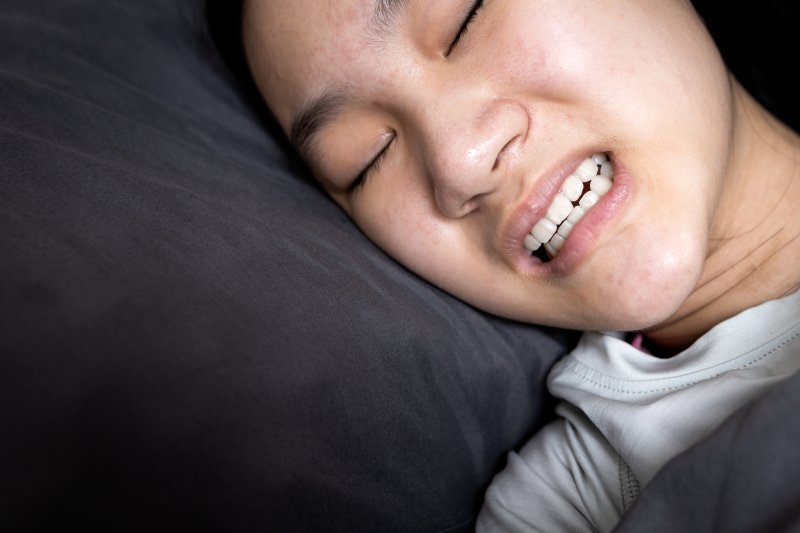
Bruxism refers to when a person involuntarily grinds or clenches their teeth, and it is an unfortunately common oral health problem. Many people grind their teeth reflexively while sleeping or when under stress, and this can lead to a range of issues such as chips, cracks, fractures, excessive wear, a receding gumline, TMJ disorder, and even tooth loss. Here’s a brief guide to how bruxism can affect your dental implants and what you can do to protect your newly restored smile.
Can Teeth Grinding Hurt My Dental Implants?
Dental implants are usually made from an incredibly strong alloy called titanium that can fuse with the surrounding bone tissue through the natural process of osseointegration, and the artificial teeth they support are made from durable materials such as dental porcelain or ceramics. While this makes implants as strong as or stronger than natural teeth, they can still become damaged if exposed to excessive pressure. Over time, grinding can crack, break, or wear down an artificial tooth, and the force can gradually work the implant out of place in the jaw, causing it to fail.
Can I Receive Dental Implants If I Grind My Teeth?
Many patients require treatments such as gum disease therapy or bone grafting before they can be ready to receive dental implants. For a patient who grinds their teeth to get implants, it may be necessary to reinforce their jaw with bone grafts so the titanium can fuse with it more thoroughly. While this may be the best way for some patients to minimize their chances of implant failure, it may not be necessary for others.
How Can I Protect My Dental Implants from Grinding?
If you grind your teeth, your dentist will probably recommend wearing a bite guard to bed. These appliances are designed to fit over the top or bottom arch of teeth to cushion them against the force of grinding. This can protect your dental implants and natural teeth from damage as you sleep while preventing a great deal of soreness in the morning.
While teeth grinding can cause serious oral health problems, there are measures you can take to prevent damage and keep your smile healthy. Consulting with your dentist can help you find the best way to protect your teeth and dental implants from grinding injuries.
About the Author
Dr. Xhelo Shuaipaj earned his dental degree from the Loyola University College of Dental Surgery and has taught many other dentists how to place and restore dental implants. He holds his Fellowship in the International Congress of Oral Implantologists and is a member of the American Dental Association. His offices in Lemont and Downers Grove offer general, restorative, cosmetic, and emergency dentistry as well as dental implant services. To schedule your consultation for dental implants, contact his practice online.
